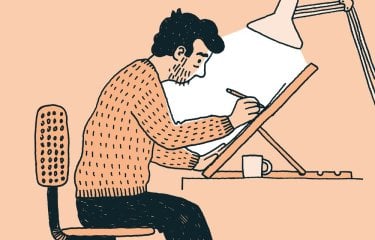Creative Conscience Honours Design Graduate
12 July 2018
Sustainable Product Design graduate and Creative Conscience Award winner Elliot Lunn joined us to discuss his recent success, his time at Falmouth and his upcoming Masters at the Royal College of Art.
Can you provide some background detail on your winning project?
My project FORMiT, which won the Product Structural Design category at Creative Conscience, is an open source recycling tool for creating 3D objects from paper pulp. It works by drawing water and pulped paper through a porous mould binding the paper fibres together, the paper is then removed from the mould to produce a 3D object.
How does it feel to win a Creative Conscience Award?
I was surprised and excited to find out I had won a Creative Conscience award and kept checking the email to see if there was a mistake! The CC are very different to normal design awards as they are about creating a collective of people who can offer advice on current and future projects, which for me was more exciting than just winning a prize.
What are your main influences and inspirations when designing?
I have a broad range of interests from a joy in making and materials, to sustainability, education and engineering. When developing designs, I try to find a way that my interests can influence the project I am working on, which always helps me to get passionate about the project.
Which Masters will you be studying at the RCA?
I will be studying Design Products at the RCA. It's always been a university that I have admired, I remember going to visit an exhibition at RCA whilst on a first-year trip to London Design Week.
How did studying at Falmouth help you to hone your skills?
Studying Sustainable Product Design at Falmouth has taught me to think like a designer and not a maker. Designing and making for oneself is easy. However, I have begun to learn the skills for evaluating others' needs and finding a solution to a problem that isn't necessarily my own. These are the skills I feel are invaluable when progressing in my design career.
As for the university, I am heavily dyslexic which has always been a major hurdle in whatever I do. I feel the one on one support from the university has improved the way I tackle the things that I find most difficult. This has given me the confidence to take on roles I would have previously shied away from.








